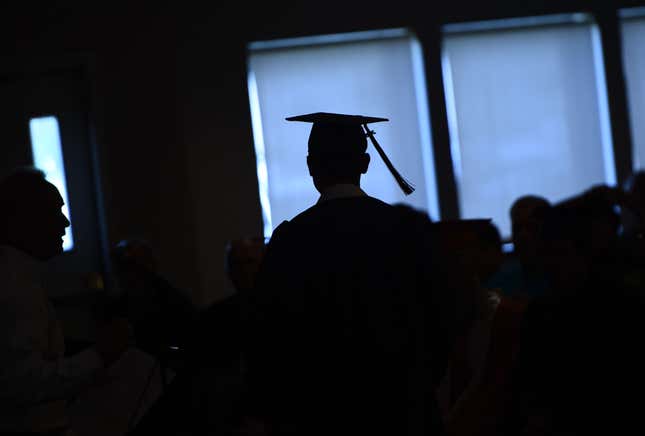A High School Principal Cut a Valedictorian's Mic After He Started Talking About His Queer Identity
The graduating New Jersey teen continued reciting his speech from memory.
EntertainmentEntertainment

A high school principal cut a valedictorian’s mic when he started discussing his queer identity in his commencement address.
Bryce Dershem, had just begun to recall how he came out as a freshman at his Eastern Regional High School, in New Jersey, when Robert Tull, the principal, unplugged the microphone and removed it from its stand. According to the New York Times, Tull simultaneously took away Dershem’s prepared remarks, gesturing to him to instead continue reading from the previously agreed upon speech, which didn’t include any mention of Dershem’s queerness or struggles with mental health.
-

-

-

-

-

-

-

-

-

-

-

-

-

-

-

-

-

-

-

-

-

-

-

-

-

-

-

-

-

-

-

-

-

-

-

-

-

-

-

-








































